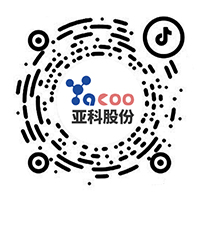Search Product
Structure Search
Search
Advantage Products
Location: Industrial Info
Boosting High-Performance in Lithium–Sulfur Batteries via Dilute LiTFSi-based Electrolyte
Although the lithium-sulfur battery has the advantages of high energy density and low production cost and is widely concerned, the existence of the shuttle effect of the lithium-sulfur battery has limited its development. After decades of development, it has not been able to achieve large-scale commercial applications . In order to solve the shuttle effect of polysulfides, researchers in various industries have adopted various methods. The development of functional electrolytes with different concentrations and different forms has been a research hotspot in recent years.
In the study of electrolytes, the traditional view is that diluted or ultra-dilute electrolytes will exacerbate the dissolution and shuttle effect of polysulfides, resulting in the decline of lithium-sulfur battery capacity. A research result published recently in the journal "Nano Letters" , Breaking the tradition, demonstrating the excellent performance of diluted LiTFSi/DME/DOL/LiNO3 based electrolyte, which can better wet the electrode, for the high sulfur load cathode and low electrolyte/sulfur ratio in lithium sulfur battery, greatly improve the rate performance and Stable cycle performance.
.png)
The diluted (0.1M) electrolyte was prepared by using LiTFSI salt and solvent (DME / dol, 1:1) and 1 wt.% of LiNO3. The results show that this kind of dilute LiTFSI based electrolyte not only has excellent wettability on the sulfur positive electrode, but also can significantly reduce the short chain polysulfide dissolution and the shuttle effect of polysulfide. Moreover, the performance of lithium sulfur battery based on this electrolyte is better than that of standard 1 In M or high concentration electrolyte (2mgcm-2) and high load (3.8-5.2mgscm-2), the electrode has higher multiplying power and better stability (capacity retention rate and charge transfer resistance have not increased).
In conclusion, this study challenges the traditional concept and reveals the extraordinary ability of dilute LiTFSi groups to inhibit the dissolution of short-chain polysulfides and the shuttle effect of polysulfides, which may be more suitable for next-generation high-performance lithium-sulfur batteries and possibly other conversion-type positive electrodes High-quality chemical materials.
Related links: LiTFSi
References: Feixiang Wu, Fulu Chu, Guillermo A. Ferrero, Marta Sevilla, et al., Boosting High-Performance in Lithium-Sulfur Batteries via Dilute Electrolyte, Nano Lett., 2020, DOI: 10.1021/acs.nanolett.0c01778












